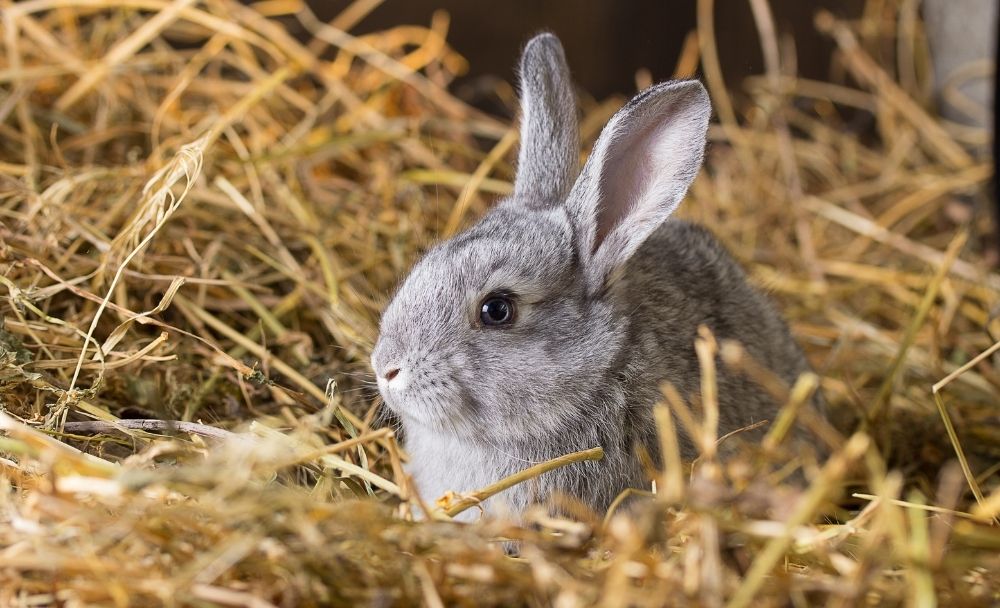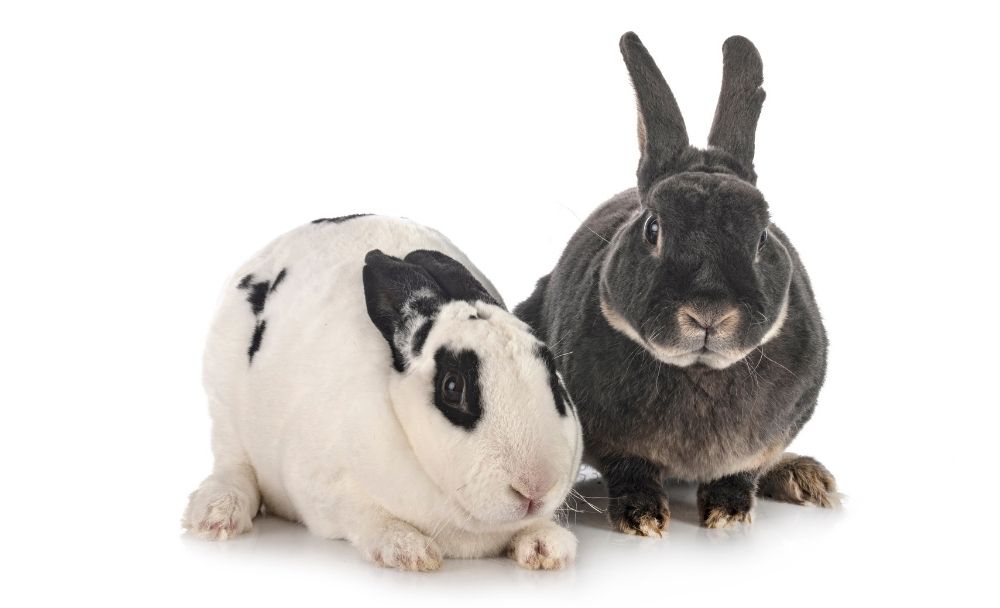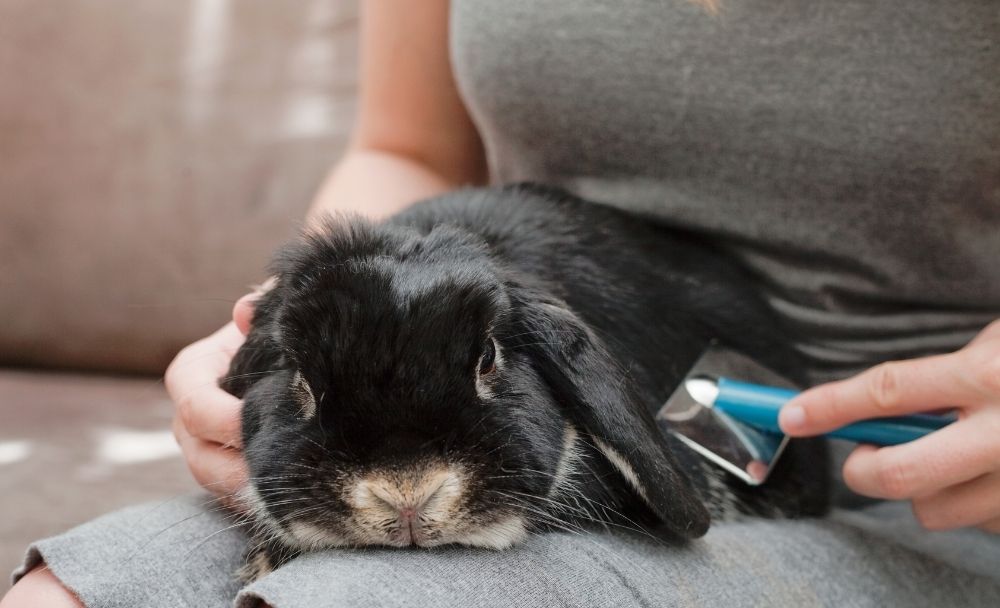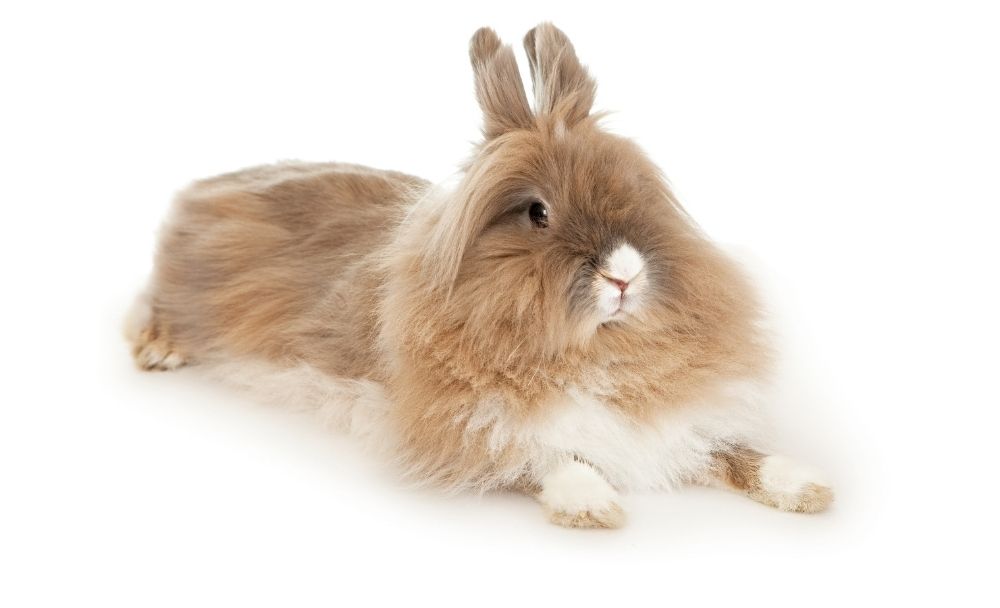Rabbits are not hypoallergenic, but some breeds are friendlier to people with allergies. This article will look at why people get allergies to rabbits, the different breeds, and how you can select the closest option to a hypoallergenic rabbit.
What is a Hypoallergenic Rabbit?
When an animal is hypoallergenic, they have less chance of stimulating a reaction in allergy sufferers. Hypoallergenic pets still produce irritants and allergens; however, they usually produce less than others of the same types because of their coat type or absence of fur.
As all rabbits have fur, they will produce some irritants, particularly when they molt. The best choice of rabbit, if you are an allergy sufferer, is a Rex Rabbit or Mini Rex Rabbit.
What Causes Allergic Reactions?

Many people believe that the fur of rabbits and other animals causes allergic reactions, but there are other factors that they don’t consider.
The first factor is rabbit dander, which is the dead skin that falls off the rabbits, and this causes allergies.
The second factor is the rabbit’s saliva. It produces a protein that causes an allergic response in certain people.
Tiny quantities of extremely allergenic proteins from the animal’s saliva are transferred on their skin because animals groom themselves. When your rabbit sheds, it will release these protein allergens into the air and surrounding environment, causing undesirable symptoms for allergy sufferers.
Another factor is the bunny’s urine, which can also produce the protein that affects some people.
Of course, loose rabbit hairs can cause irritation and itchiness, but it is not the leading cause of allergies.
Because rabbits are small and their dander is barely visible, it’s difficult to control them from spreading across the house. The protein could be invisibly floating around in the air and aggravating the allergies of some.
While there are no hypoallergenic rabbits, individuals experiencing minor allergic reactions have choices that might not trigger an allergy. Sometimes, it’s not about the rabbit at all; it’s the bedding and hay that can also cause allergic reactions.
Symptoms of Rabbit Allergies
The symptoms of a rabbit allergy are similar to those of most other allergies. These can include:
- Blocked or runny nose
- Sneezing
- Itchy or watery eyes
- Cough, wheezing, and/or shortness of breath
- Rashes and skin irritations
- Pain around your sinuses from nasal congestion
As an Allergy Sufferer, Can I Still Get a Bunny?
The answer is yes, you can! It might not be the exact breed you wanted, but you still can get a bunny without your allergies going haywire.
There are, however, some things you should do to prevent allergies when taking care of rabbits.
Choosing the Right Rabbit Breed

Some rabbit breeds are much more hypoallergenic than others. The best option for potential bunny owners who suffer from allergies is the Mini Rex or Rex Rabbits.
These somewhat hypoallergenic bunnies have much shorter fur and require less grooming. As they do not shed a lot and they produce less dander. They have a very dense, velvet-like coat of fur.
Nevertheless, there is no need to worry about your limited choices. Rex rabbits are very friendly and patient. They like people petting them, and their fur is soft and plush.
Rex bunnies are the only recommended hypoallergenic bunny. Yet, if you feel like your allergies are not too bad, you can still get other rabbits as long as you know how to prevent allergic responses from happening in the first instance. Nonetheless, I would suggest that if you are sensitive to animals and are keen to care for a bunny, then a mini rex should be your first port of call.
How to Prevent Allergic Reactions
There are ways to safeguard any allergic reactions you may get from your bunny. Even if you do not have a Rex breed of rabbit, you can use a few approaches to help lessen allergic responses, even if it might not be possible to eliminate it.
Let’s take a look at a few preventative measures you can take to make sure you and your rabbits live a healthy life.
Cleaning
Cleaning is probably the most evident and significant preventative measure you can use against allergies.
But cleaning your rabbit’s enclosure is also very important and should be done regularly, so pet dander or fur does not spread through the air.
Change bedding and litter frequently, so no mold builds up from dampness in the cage. Hay can be prone to collecting dust, in particular, timothy hay. Try orchard grass, oat hay, or bermuda hay instead, or buy timothy hay in small cubes.
Straw bedding can aggravate allergies. Try using highly absorbent bedding such as Carefresh or Fresh News that creates little to no dust.
Grooming

Frequently brushing your rabbit’s coat will help remove loose dander and fur. Regularly brushing your rabbit is also beneficial as this can help keep the skin and coat healthy. It also allows you to assess the condition of your rabbit’s coat.
This article on rabbit grooming has all the info you need.
The best practice is to brush your rabbit’s coat every two to three days. But be mindful with Rex rabbits, as over-brushing can damage their fur. Also, brush your rabbit outside to avoid dander floating throughout your home.
Also, be more vigilant in the Spring, as rabbits shed more of their coat. This process releases a lot of dander, so brushing them more regularly will help keep your allergies in check.
Outdoor Living Space
If you are prone to allergic reactions, the best option is to have an outdoor enclosure for your bunny. If you only have one specific area for your bunny, it will help lessen the spread of dander and fur, which will prevent allergic responses.
You can create a designated space for your rabbit indoors, but keeping them outdoors will help more.
If you have an Outdoor Rabbit Run and Hutch, the bunny can live outside, and this will ensure that dander will not spread in your home. As an extra measure, you can regulate the number of times you visit your bunny but don’t become neglectful of their needs because of an allergic propensity. Rabbits require regular attention and care, and if you don’t think this might be challenging because of your allergies, then perhaps a rabbit may not be for you.
Recommended Product:
I recommend Allerpet Pet Dander remover. This is safe for your bunny, as you spray the product onto the hand mitt, then run the mitt over your rabbits fur. Your bunny will enjoy the gentle brushing all the while reducing dander in your home. It is also recommended by allergists and veterinarians.
Wash Your Hands
Thoroughly washing your hands immediately after playing with or petting your bunny is another preventative measure to reduce or lessen the likelihood of an allergic reaction. Also, ensure you do not touch your face before washing your hands, as this can cause irritation and flare up your allergies.
You could also consider changing your clothes after handling your bunny, so you are not walking around with rabbit dander on your shirt, causing irritations for the rest of the day.
Medication Options
If you are determined to care for a rabbit, but you know you are likely, or will, have an allergic reaction or suffer severe allergies, then discuss with your doctor potential medication measures you could consider. This strategy could assist in lessening the effects, and it might make it possible for you to be with your bunny more while sensibly managing your allergy condition.
Rabbit Breeds to Avoid

While beautiful, lionhead rabbits, angora rabbit breeds, and jersey wooly rabbits may increase allergy symptoms in those with a pet allergy.
Final Thoughts
Just because you suffer allergy symptoms doesn’t mean you should avoid being a pet owner altogether. It’s possible to find hypoallergenic pets that will help you to diminish allergic reactions. So, if you want to care for a happy, bouncing, fluffy pet, you can make it happen as long as you know what you need to do to prevent triggering any allergic responses.

